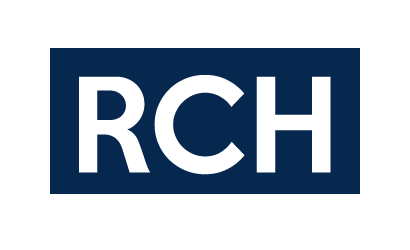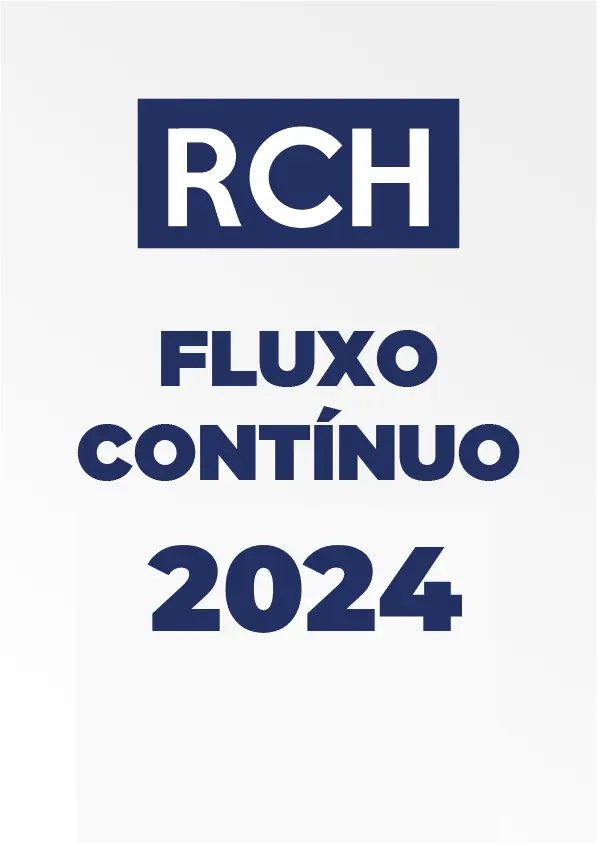EVALUATION OF THE IMPACT OF THE BETTER EARLY CHILDHOOD PROGRAM IN RIO GRANDE DO SUL BETWEEN 2010 AND 2018
DOI:
https://doi.org/10.32813/2179-1120.2024.v17.n1.a975Keywords:
childhood, poberty, development, child, programAbstract
This study analyzes the impact on child development from zero to six years in children who participated, between 201 and 2018, in a Better Early Childhood Program (PIM). The PIM is a public policy of home visitation and that weekly monitors families socioeconomically in the state of Rio Grande do Sul. For this, competences on the relationships between childhood and human development. Research shows the role of genetic family and determinants and social determinants of factors. An analysis of the impact of full participation covered indicators of non-cognitive, cognitive and integral development. The results of their children show that families are full participants in the PIM, report having less difficulty in educating and that children have less difficulty in relating. High schooling of the caregiver and income families are factors that contribute to participation in the program. There is a positive causal effect between the averages of the three development indicators when participation is full. Furthermore, all the results from the control group show that children are more likely to be treated than all the results from the control group.
Metrics
References
ANAZAWA, L. et al. A loteria da vida: examinando a relação entre a educação da mãe e a escolaridade do jovem com dados longitudinais do Brasil. São Paulo: INSPER, 2016. Disponível em: < https://www.insper.edu.br/wp-content/uploads/2018/09/relacao-educacao-mae-escolaridade-jovem-longitudinais-brasil-atualizado.pdf>. Acesso em 20 nov. 2021.
BANCO INTERAMERICANO DE DESENVOLVIMENTO – BID. Primeira Infância Melhor: transformando a atenção aos primeiros anos de vida na América Latina. 2017. Disponível em: < https://publications.iadb.org/publications/portuguese/document/Primeira-Inf%C3%A2ncia-Melhor-Transformando-a-aten%C3%A7%C3%A3o-aos-primeiros-anos-de-vida-na-Am%C3%A9rica-Latina-Desafios-e-conquistas-de-uma-pol%C3%ADtica-p%C3%BAblica-no-sul-do-Brasil.pdf> Acesso em 20 nov. 2021.
BECKER, S.; ICHINO A. Estimation of average treatment effects based on propensity scores. The stata journal, v. 2, p. 358-377, 2002. Disponível em: < https://journals.sagepub.com/doi/10.1177/1536867X0200200403>
BEE, H; BOYD, D. A criança em desenvolvimento. 12. ed. Porto Alegre: Artmed, 2011.
BRASIL. Ministério da Cidadania – MDS. Disponível em: <https://www.gov.br/cidadania/pt-br/noticias-e-conteudos/desenvolvimento-social/noticias-desenvolvimento-social/crianca-feliz-completa-cinco-anos-com-1-2-milhao-de-familias-atendidas-e-50-milhoes-de-visitas>. Acesso em: 25 fev. 2022.
CUNHA, F.; HECKMAN, J. Capital Humano. In: ARAÚJO, Aloísio P. Aprendizagem infantil: uma abordagem da neurociência, economia e psicologia cognitiva. Ciência e tecnologia para o desenvolvimento nacional. Estudos estratégicos. Rio de Janeiro: Academia Brasileira de Ciências, 2011.
DEHEJIA, Rajeev H.; WAHBA, Sadek. Propensity score-matching methods for nonexperimental causal studies. Review of Economics and statistics, v. 84, n. 1, p. 151-161, 2002. Disponível em: < https://direct.mit.edu/rest/article-abstract/84/1/151/57311/Propensity-Score-Matching-Methods-for> Acesso em 20 nov. 2021.
DOHERTY, G. Zero to Six: the basis for school readiness. Ottawa: Human Resources Development, 1997.
FLAVELL, J. H.; MILLER, P. H.; MILLER, S.A. Cognitive development. 3. ed. New York: Pearson, 1993.
FRASER, M. The ecology of childhood: a multisystem perspective. In: Fraser, Mark. Risk and resilience in childhood: an ecological perspective. National Assn of Social Workers Press, 1997.
FUNDO DAS NAÇÕES UNIDAS PARA A INFÂNCIA — UNICEF. Situação Mundial da Infância 2006. 1ª ed., New York: UNICEF NY, 2005. Disponível em: https://crianca.mppr.mp.br/arquivos/File/publi/unicef_sowc/sit_inf_brasil_2006_completo.pdf. Acesso em 20 nov. 2021.
FUNDO DAS NAÇÕES UNIDAS PARA A INFÂNCIA – UNICEF. Situação Mundial da Infância 2007. 1ª edição. New York: UNICEF NY, 2006. Disponível em: https://crianca.mppr.mp.br/arquivos/File/publi/unicef_sowc/sit_mund_inf_2007_mulheres.pdf. Acesso em 20 nov. 2021.
GAAG, J. V. der. From Child Development to Human Development. In: YOUNG, M. E. Investing in Our Children’s Future. Washington, D.C.: The World Bank, 2002. p. 63-80.
GERTLER, P. J. et al. Impact evaluation in practice. 2. ed. Washington, 2016. Disponível em: <https://www.worldbank.org/en/programs/sief-trust-fund/publication/impact-evaluation-in-practice>. Acesso em 20 nov. 2021.
GRANTHAM-MCGREGOR, S. et al. Developmental potential in the first 5 years for children in developing countries. Lancet, v. 369, n. 9555, p. 60-70, Jan. 2007.
HAIR, J. et.al. Multivariate Data Analysis. 6. ed. Porto Alegre: Bookman, 2009.
HECKMAN, J. The economics of inequality: the value of early childhood education. American Educator, v.35 n. 1, p. 31-35, Set, 2011. Disponível em: < https://eric.ed.gov/?id=EJ920516> Acesso em 20 nov. 2021.
HECKMAN, J. Skill formation and the economics of investing in disadvantaged children. Science v. 312, p. 1900-1902, 2006. Disponível em:< https://www.science.org/doi/abs/10.1126/science.1128898> Acesso em 20 nov. 2021.
HECKMAN, J. The case for investing in disadvantaged young children. In: First Focus (Ed.) Big ideas for children: Investing in our nation's future, p. 49-58. Washington, DC. 2008a.
______. Schools, Skills, and Synapses. Economic Inquiry, v. 46, n. 3, p. 289–324, Jul. 2008b
HECKMAN, J. et al. The rate of return to the high/scope Perry Preschool Program. Journal of Public Economics, v. 94, n. 1-2, p. 114-128, Feb. 2010.
HECKMAN, J.; CONTI, G. Economics of child well-being. Handbook of child well-being. Chicago, out. 2012
HECKMAN, J.; MOSSO, S. The Economics of Human Development and Social Mobility. Annual Review of Economics, Cambridge, v. 6, p. 689-733, Fev. 2014
HILL, M.; SANDFORT, J. Efffects of childhood poverty on productivity later in life; implications for public policy. Children and Youth services review. v.17, p.91-126. 1995. Disponível em:< https://www.sciencedirect.com/science/article/abs/pii/019074099500005W> Acesso em 20 nov. 2021.
MACAÑA, E. O papel da família no desenvolvimento humano: o cuidado da primeira infância e a formação de habilidades cognitivas e socioemocionais. Porto Alegre: Lume, 2014. Disponível em: <https://lume.ufrgs.br/handle/10183/2/browse?value=Macana%2C+Esmeralda+Correa&type=author>. Acesso em: 10 mai. 2021.
MACAÑA, E. et.al. Fatores associados à pobreza na primeira infância no Brasil e no Rio Grande do Sul In: XIX Encontro de Economia da Região Sul, Florianópolis 8-10 jun 2016.
McCAIN, M.; MUSTARD, J. F. Early Years Study: reversing the real brain drain. Toronto: The Canadian Institute for Advanced Research, 1999. Disponível em: <https://www.oise.utoronto.ca/guestid/humandevelopment/UserFiles/File/Early_Years_Study_1.pdf> Acesso em 20 nov. 2021.
MENEZES-FILHO, N. (Org). Avaliação econômica de projetos sociais. 1. ed. São Paulo: Dinâmica Gráfica e Editora, 2012. Disponível em: < https://edisciplinas.usp.br/pluginfile.php/188592/mod_resource/content/1/Livro_Av_Econ_ajuste.pdf>. Acesso em 20 nov. 2021.
MUSTARD, J. F. Experience-based Brain Development: scientific underpinnings of the importance of early child development in a global world. In: YOUNG, M. E. (Ed.). Early Child Development: from measurement to action. Washington, D.C.: The World Bank, p. 35-64, 2007. Disponível em: < https://openknowledge.worldbank.org/handle/10986/6837>. Acesso em 20 nov. 2021.
NATIONAL SCIENTIFIC COUNCIL ON THE DEVELOPING CHILD. In: Center on the developing child at Harvard University (2006). From neurons to neighborhood: the science of early childhood development. Washington: National Academy Press, 2007. Disponível em: https://developingchild.harvard.edu/wp-content/uploads/2015/05/Science_Early_Childhood_Development.pdf. Acesso em 20 nov. 2021.
NCPI – COMITÊ CIENTÍFICO NÚCLEO CIÊNCIA PELA INFÂNCIA. Estudo nº 1: o impacto do desenvolvimento na primeira infância sobre a aprendizagem. 2014. Disponível em: <https://ncpi.org.br/publicacoes/impactodesenvolvimento/>. Acesso em 20 nov. 2021.
NEWCOMBE, N. Desenvolvimento infantil: abordagem de Mussen. 8. ed. Porto Alegre: Artmed, 1999.
PIAGET, J. O juízo moral na criança. São Paulo: Summus, p. 298-302, 1994.
PROGRAMA DE LAS NACIONES UNIDAS PARA EL DESARROLLO - PNUD. Informe Nacional de Desarrollo Humano Panamá 2014. El Futuro es agora: primeira infância, Juventud y formación de capacidades para la vida. Programa de las Naciones Unidas para el Desarrollo. Panamá: 2014. Disponível em: <https://planipolis.iiep.unesco.org/en/2014/informe-nacional-de-desarrollo-humano-panam%C3%A1-2014-el-futuro-es-ahora-primera-infancia-juventud> Acesso em 20 dez. 2021.
RIO GRANDE DO SUL. Assembleia Legislativa. Lei Nº 12.554, de 03 de julho de 2006. Gabinete de consultoria legislativa, Porto Alegre. Disponível em: <http://www.al.rs.gov.br/FileRepository/repLegisComp/Lei%20n%C2%BA%2012.544.pdf>. Acesso em 20 nov. 2021.
ROSENBAUM, P.; RUBIN D. Constructing a control group using multivariate matched sampling methods that incorporate the propensity score. The American Statistician. 1985.
RUTTER, M. The promotion of resilience in the face of adversity. Family Count: effects on child and adolescent development. New York: Cambridge University Press, 2006.
SCHNEIDER, A.; RAMIRES, V. Primeira Infância Melhor: Uma inovação em política pública. Brasília: UNESCO, 2007. Disponível em: <https://unesdoc.unesco.org/ark:/48223/pf0000155250_por> Acesso em 20 nov. 2021.
SCHOON, I. Risk and resilience: adaptations in changing times. Cambridge: Cambridge university Press, 2006. Disponível em: < https://www.researchgate.net/publication/285935579_Risk_and_Resilience_Adaptations_in_Changing_Times> Acesso em 20 nov. 2021.
SEN, A. Inequality Reexamined. New York: Harvard University Press, 1998.
SEN, A. Desenvolvimento como liberdade. São Paulo: Companhia das Letras, 2000
______. In: FUKUDA-PARR, S.; KUMAR, E. Readings in Human Development: Concepts, Measures and Policies for a Development Paradigm. New York: United Nations Development Programme, 2003. Disponível em: <https://www.tandfonline.com/doi/abs/10.1080/1354570022000077980>. Acesso em 20 dez. 2021.
SHONKOFF, J.; PHILLIPS, D. From neurons to neighborhood: the science of early childhood development. Washington: National Academy Press, 2000.
SHORE, R. Repensando o cérebro: novas visões sobre o desenvolvimento inicial do cérebro. Tradução de Iara Regina Brazil. Porto Alegre: Mercado Aberto, 2000. Título original: Rethinking the brain.
SISPIM – Sistema de Informação do Primeira Infância Melhor (2017). Disponível em <http://www.pim.saude.rs.gov.br/a_PIM/php/identificacaoDeUsuario.php?d=b>. Acesso em: 10 mai. 2021.
UNICEF. Situação da infância brasileira. Brasília: UNICEF BRASIL, 2006. Disponível em: <https://www.crosscontent.com.br/situacao-da-infancia-brasileira-2006-10-anos/#:~:text=Publicado%20h%C3%A1%2010%20anos%2C%20o,crian%C3%A7as%20de%20at%C3%A9%206%20anos.> Acesso em 20 dez. 2021.
_____ Early Child Development: from measurement to action. Washington, D.C.: The World Bank, p. 210-220, 2007.
VYGOSTKY, L. Pensamento e linguagem. 3. ed. Brasília, WMF, 2009.
WORLD BANK. From known unknowns to black swans: how to manage risk in Latin America and the Caribbean. Washington, 2018.
Downloads
Published
How to Cite
Issue
Section
License
Copyright (c) 2024 Human Sciences Journal - RCH

This work is licensed under a Creative Commons Attribution 4.0 International License.
The publications of the Human Sciences Journal are registered under the Creative Commons Attribution CC-BY license.
1. The contents of the manuscripts are the exclusive responsibility of their author.
2. It is allowed the total or partial reproduction of manuscripts published in the journal, provided that the source is cited.
3. When submitting their manuscript to the Journal, the authors certify that they are of their own authorship and unpublished (not published in any digital or printed media).
4. The copyright of the articles published in the Journal are of the author, with first publication rights reserved for this journal.
5. For disclosure purposes, the Journal may replicate the works published in this journal in other media, such as social networks (Facebook, Academia.Edu, etc.).
6. The Journal is of public access, therefore, the authors who submit manuscripts agree that they are of free use.
7. In case of any illegality, fraud, or other attitude that puts in doubt the honesty of the publication, especially the practice of plagiarism, the manuscript will be automatically rejected.
8. If the manuscript has already been published, it will be immediately removed from the base of the Journal, its citation linked to the Journal will be prohibited and the cancellation of the referred publication shall be reported in the next issue of the one in which the article was published. In case of the procedure for the withdrawal of the paper the authors will be informed beforehand, being guaranteed the right to a broad defense.
9. The personal data provided by the authors will be used exclusively for the services provided by this publication and will not be made available for other purposes or to third parties.





